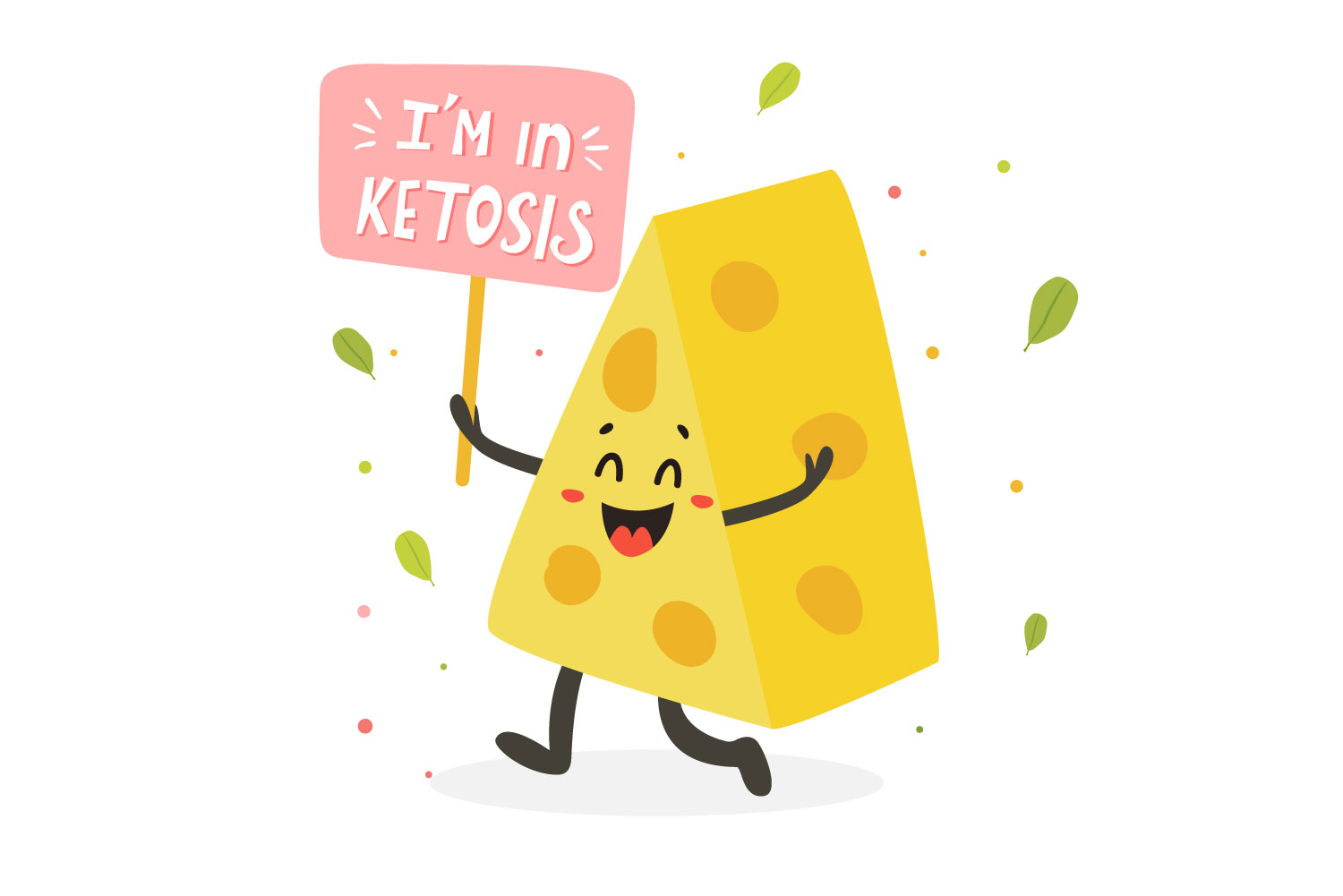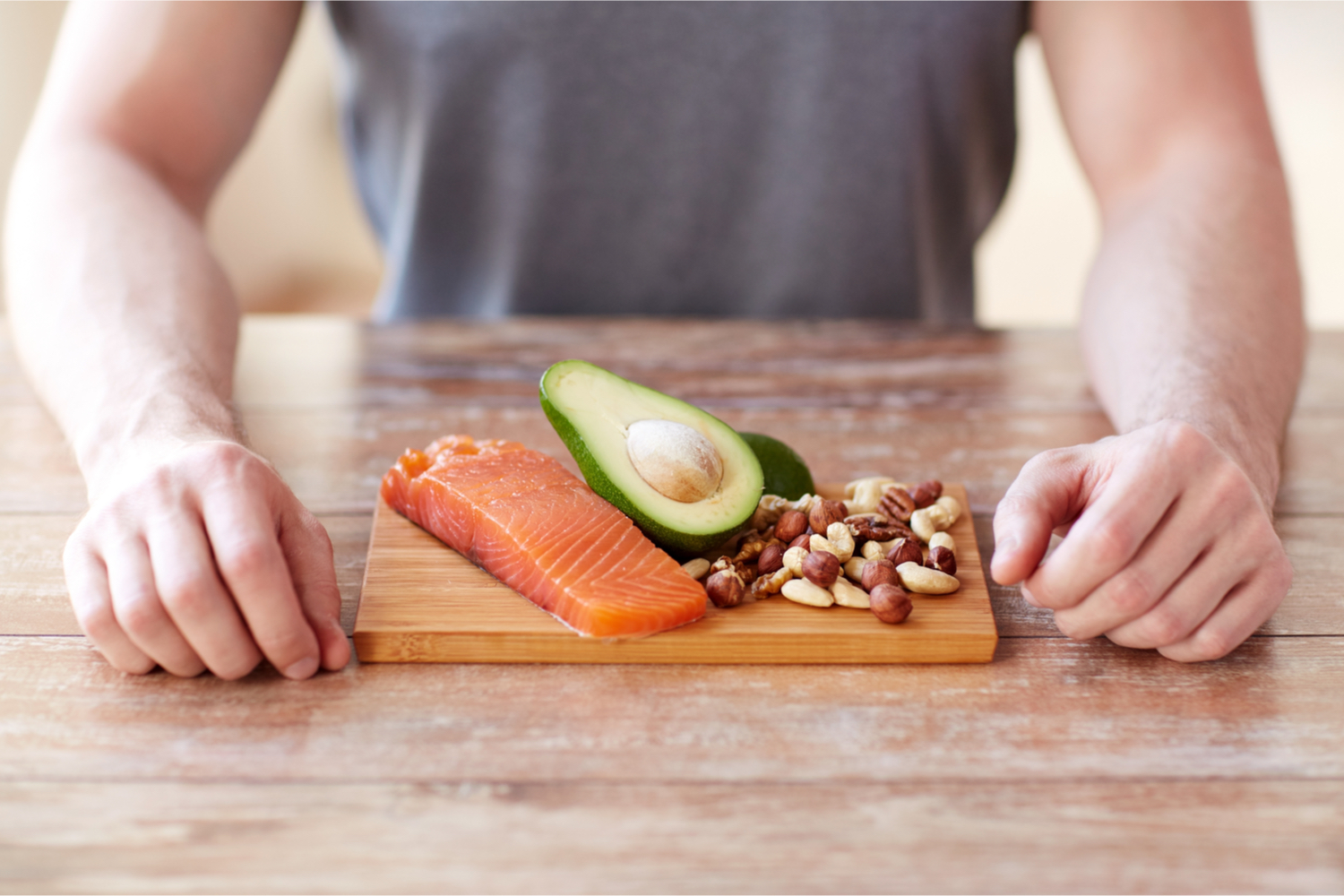SUMMARY
Whether you’re looking to shed pounds or maintain a healthy weight, fat-burning foods can simplify your journey. The list includes menu items such as fatty fish, coconut oil and organic lean meat.
Getting lean and fit isn’t always about sweating it out at the gym.
There are steps you can take that will help you work smarter, not harder, when it comes to achieving or maintaining a healthy, defined body.
That’s good news if you’re a busy professional whose schedule doesn’t give you as much time as you’d like for pumping iron and hitting the treadmill.
You probably know that the food you eat can play a big role in the way your body looks. Most of us are aware that if we spend too many nights indulging in chips and ice cream on the couch, we’ll inevitably pack on some pounds.
So, we know that certain foods can cause us to gain weight. But did you know that there are foods that have the opposite effect?
That’s right – certain menu items can actually do us a solid and help us burn fat. They’re able to achieve this because they have the effect of speeding up the body’s metabolism. When they’re part of a healthy diet, they can help us lose body weight, build muscle mass and achieve a more sculpted physique.
What are these magical, wondrous fat-burning foods that support a ripped body and healthy weight loss?
In this article, we will:
- Explain what metabolism is and how it works
- Talk about the factors that affect your metabolism
- Discuss variables that impact how many calories you burn each day
- Let you know which foods work the hardest to boost your metabolism and burn fat
What is metabolism?
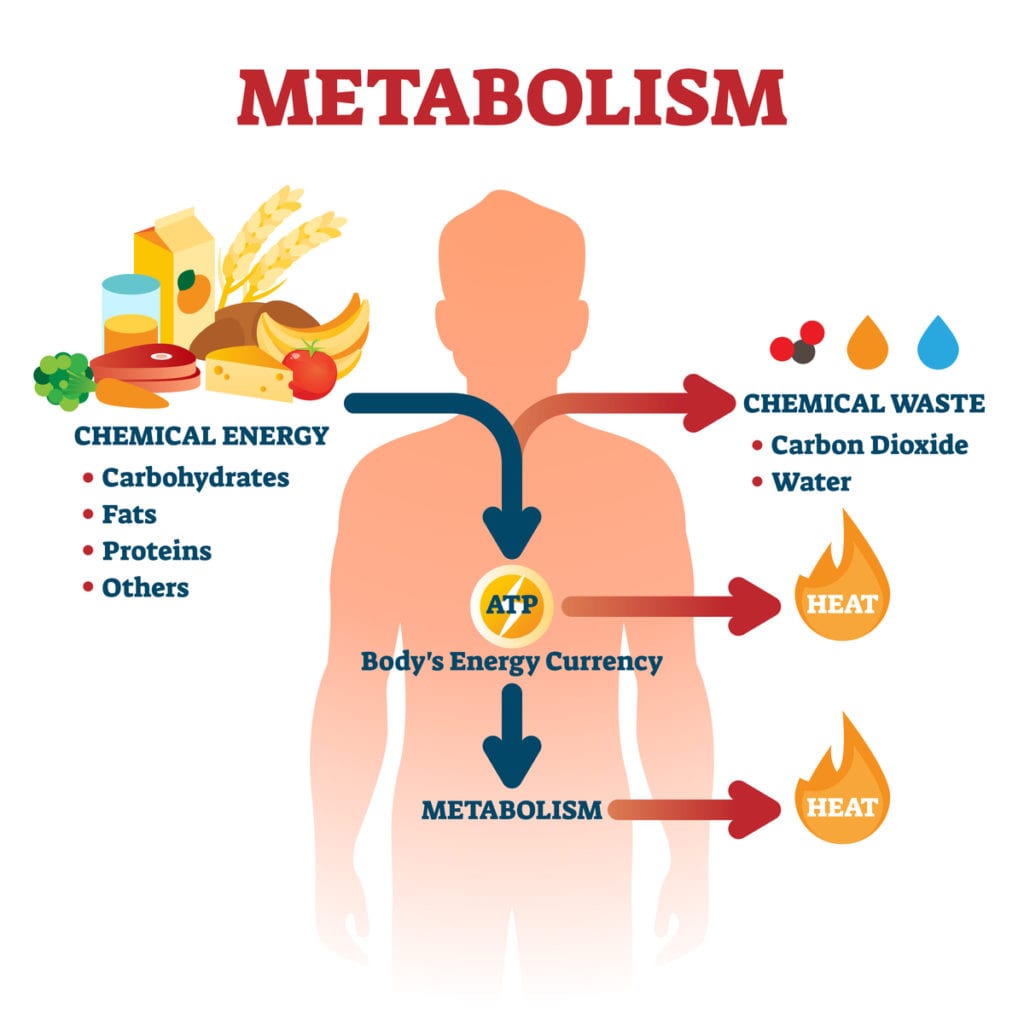
Your metabolism works with the food you eat and the beverages you drink to transform them into energy. Your body uses this energy to keep you active and alive.
So, how does this happen exactly?
Metabolism involves a slew of complex biochemical processes. The calories in your food and drink are combined with oxygen. This facilitates a release of life-giving energy.
We’re aware of this energy being expended when we’re engaged in active tasks, such as walking or running. But your body burns energy even when it’s at rest.
That energy is used to support your breathing, and it powers the circulation of your blood. It’s used to adjust your hormones to optimum levels. And it provides the assistance your body needs to grow and repair its cells.
Your body burns calories to carry out these basic functions. The number of calories burned during these processes is knows as your basal metabolic rate.
Interested in dropping a few pounds? There’s one thing to keep in mind: For weight loss to take place, your body needs to burn more calories than you consume.
Factors that influence your metabolism

The basal metabolic rate varies from person to person.
It’s influenced by these factors:
1. Body size and composition
A larger body requires more energy to keep it up and running. This means that the larger you are and the more you weigh, the higher your basal metabolic rate will be. Also, muscle tends to require a lot of metabolic support. The more muscular you are, the higher your metabolism is likely to be.
2. Gender
When it comes to basal metabolism, men tend to burn more calories than women. This likely has to do with the fact that men tend to have less excess fat and more muscle than females of the same age and weight. More muscle means more calories burned when the body is in motion or at rest.
3. Age
Many of us tend to lose muscle and gain excess fat as we age. When your body sheds muscle, it can cause your metabolism to slow down and burn less calories. As a result, many people find that their metabolism becomes more sluggish as they age.
Burning calories

Your basal metabolism isn’t the only thing impacting the calories your body burns each day.
The number of calories burned is also affected by these two factors:
1. Food processing
Every day, your body has to digest, absorb, transport and store the food you eat. This process is known as thermogenesis. Believe it not, calories are burned as you carry out this process. That means that the act of eating and digesting a meal actually burns calories, regardless of what types of food are consumed.
To get more specific, your body uses about 10 percent of the calories you consume from the carbohydrates and protein you eat to facilitate thermogenesis. These calories are used to power the process by which your body digests your food and absorbs all the nutrients consumed with each meal.
2. Physical activity
Most of us know that physical activity burns calories.
This includes any type of movement, such as chasing after your kids at home or walking to the mailbox to collect your mail. Scientists call this type of activity nonexercise activity thermogenesis (NEAT). Actions such as fidgeting, gardening or merely walking from one room to the next all fall under the umbrella of NEAT. It’s estimated that NEAT burns between 100 to 800 calories each day.
Of course, physical activity also includes exercise. You’re no doubt well aware that those grueling gym workouts involving cardio or strength training can help burn calories.
Physical activity can differ dramatically from day to day. Of all the factors that impact how many calories your body burns each day, physical activity is by far the most variable.
Fat-burning foods
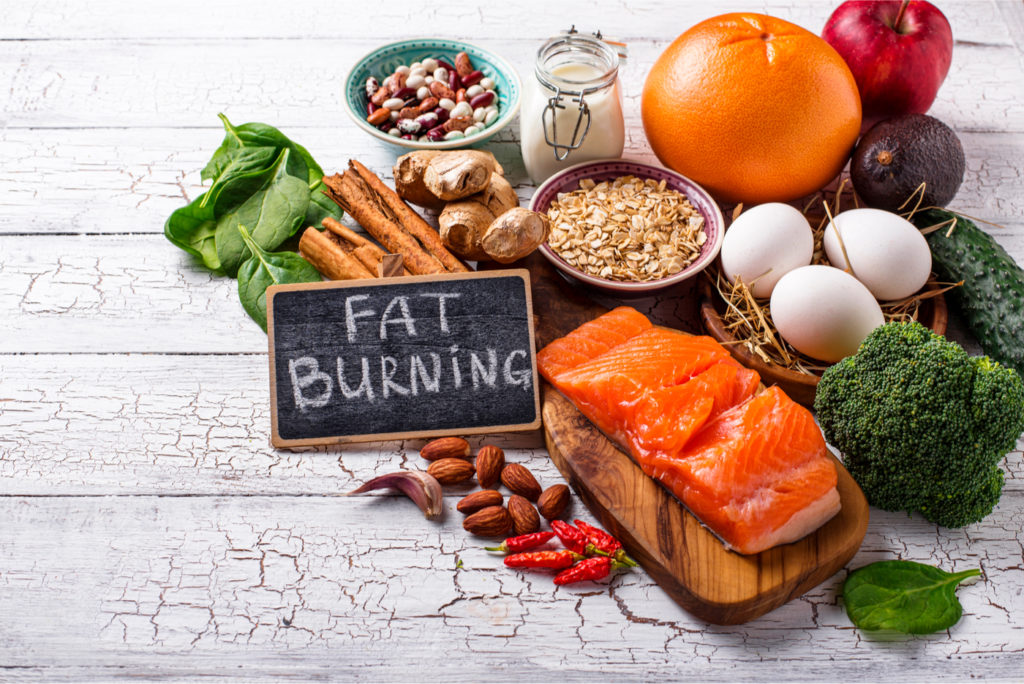
Certain foods have the power to help you dramatically reshape your body.
If you want to achieve healthy weight loss, these foods can help you say goodbye to belly fat and hello to a leaner, trimmer physique. And if you simply want to maintain your current healthy weight, these menu items can simplify the process.
Here are some fat-burning foods that can support you on your health journey.
Fatty fish
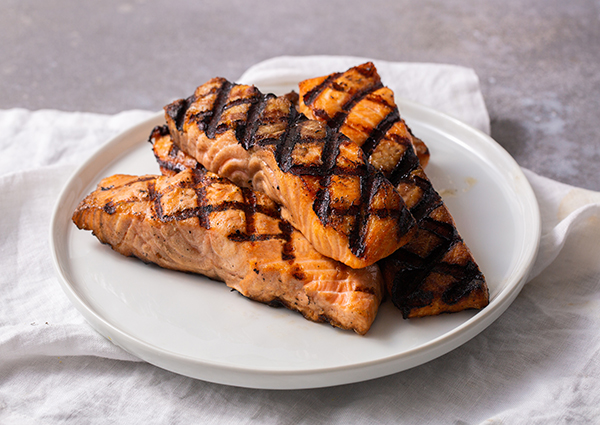
Foods that burn fat and help facilitate weight loss can sometimes be pretty delicious. That’s certainly the case with fatty fish, a filling menu item with the goods to satisfy your taste buds.
The list of oily fish that can help speed up your metabolism includes choices such as:
- Salmon
- Sardines
- Mackerel
- Herring
These fish all have one thing in common: They’re loaded with omega-3 fatty acids.
Omega-3s are a healthy fat that can benefit your health in several ways:
- For starters, they work powerfully to reduce chronic inflammation in the body. This type of inflammation has been linked with diseases such as diabetes.
- Studies also show that omega-3 fatty acids can help prevent heart disease.
- And since they’re included on this list, you’ve probably figured out that these fatty acids also have a powerful effect on your metabolism. They can increase your body’s ability to burn fat.
In one six-week study, participants who ingested omega-3s via fish oil supplements significantly increased lean mass and decreased fat mass.
They also experienced reduced cortisol levels. Cortisol is a stress hormone that’s been linked to fat storage.
The fat-burning power of fatty fish doesn’t begin and end with omega-3s. This food is also a rich source of healthy protein.
Studies show that digesting protein speeds up your metabolism more than digesting fats or carbs.
Protein is also very satiating. This leaves you feeling fuller longer. That satisfied, satiated feeling may ultimately cause you to consume fewer calories, and this may help support fat loss.
Beans
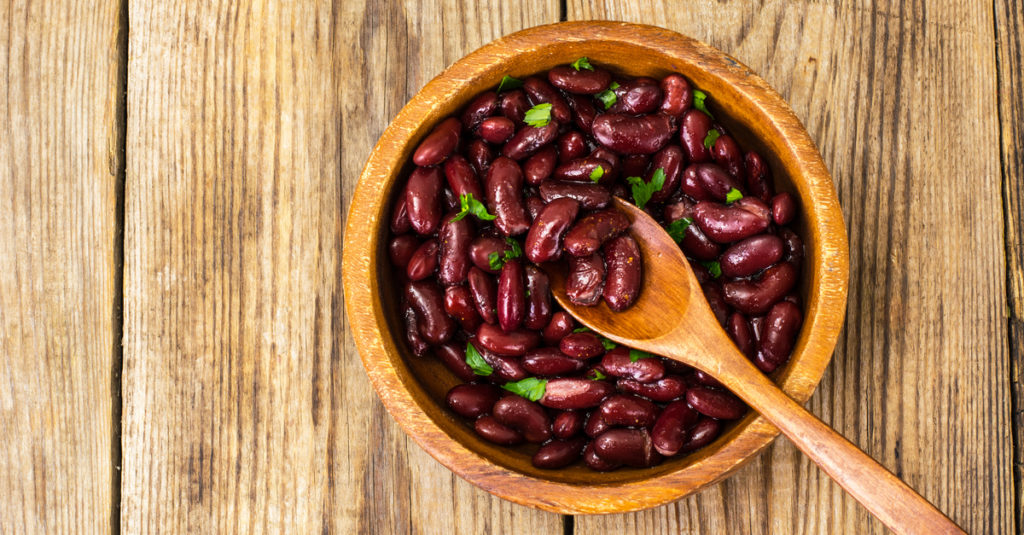
Beans are an excellent source of plant-based protein. As we’ve mentioned, protein ramps up your metabolism as it’s being digested. It also fills you up, which discourages snacking.
This food burns fat in other ways, as well. Beans are loaded with soluble and insoluble fiber. The body has to work hard to digest this fiber, and this has the effect of burning extra calories.
What’s more, both types of fiber have a potent effect: They help lower insulin levels after digestion. Lowering your insulin levels can ultimately cause your body to store less fat.
The research backs this up:
- In one study, participants who added beans to their diet each day weighed 6.6 pounds less than those who didn’t.
- This weight difference occurred despite the fact that those on the bean diet consumed, on average, an extra 199 calories each day relative to those on the eating plan that excluded legumes.
Nuts and seeds
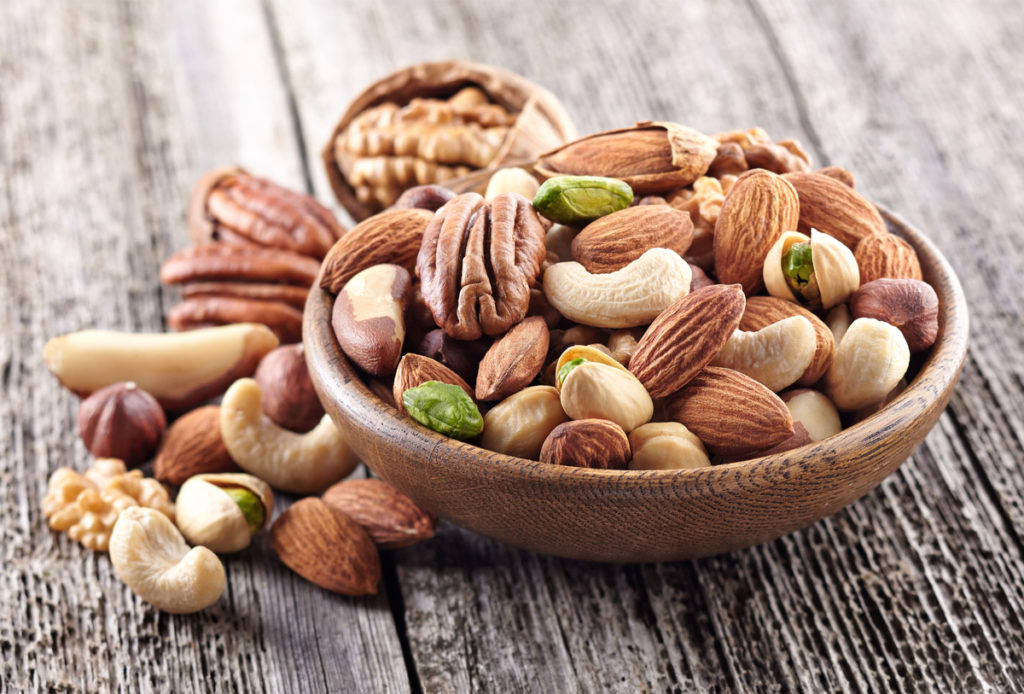
Whether they’re consumed as snacks on the go or used as ingredients in your main meals, nuts and seeds have the power to help your body ramp up its metabolism. They accomplish this in these three ways:
- Many nuts and seeds contain omega-3s that help your body put the brakes on fat.
- They also contain dietary fiber; as we’ve mentioned, the body has to work up a sweat to digest fiber, and it burns extra calories during this process.
- Finally, nuts and seeds contain healthy fats. These fats have the effect of leaving you feeling full for a longer period of time. Ultimately, this will suppress your appetite help reduce calorie intake. All this can put you on the road to a healthy body weight.
In a 2013 study, overweight participants who consumed 50 grams of almonds daily lost much more weight over a three-month period than those on an almond-free diet. Also, those on the almond diet lost more inches around their waistline than those who didn’t include these nuts in their eating plan.
Nuts and seeds also benefit your health in other areas.
In one study, nut eaters were less likely to die of cancer, heart disease and respiratory disease than those who didn’t eat these foods.
Seeds and nuts provide these benefits:
1. They support healthy cholesterol levels
Nuts and seeds contain unsaturated fat.
The body produces two types of cholesterol: low-density lipoprotein (LDL) and high-density lipoprotein (HDL). LDL cholesterol has been linked to heart disease. But HDL cholesterol is good for the body and supports heart health.
The unsaturated fat in nuts has the effect of lowering harmful LDL cholesterol.
At the same time, this fat also has the effect of raising HDL cholesterol levels. HDL cholesterol can help prevent heart disease.
2. They prevent arrhythmias
Arrhythmias are erratic heart rhythms. The omega-3 fat found in nuts and seeds can help prevent this condition.
3. They relax blood vessels
If your blood vessels become constricted, this will restrict healthy blood flow. Nuts contain arginine. This amino acid helps your body create nitric oxide, a molecule that can help relax constricted blood vessels.
4. They discourage blood clotting
A blood clot can lead to a stroke. Nuts and seeds contain omega-3 fatty acid that discourages blood clotting. In this way, they function much like aspirin in their ability to prevent strokes.
Here are some nuts and seeds to consider including in your diet:
- Almonds
- Brazil nuts
- Cashews
- Chia seeds
- Flaxseeds
- Hazelnuts
- Hemp seeds
- Macadamia nuts
- Pecans
- Pine nuts
- Pistachios
- Pumpkin seeds
- Sesame seeds
- Sunflower seeds
- Walnuts
You can grab these foods by the handful and eat them raw and whole. You can also consume them as tasty nut butter. Almond butter is an especially delicious choice.
Oysters
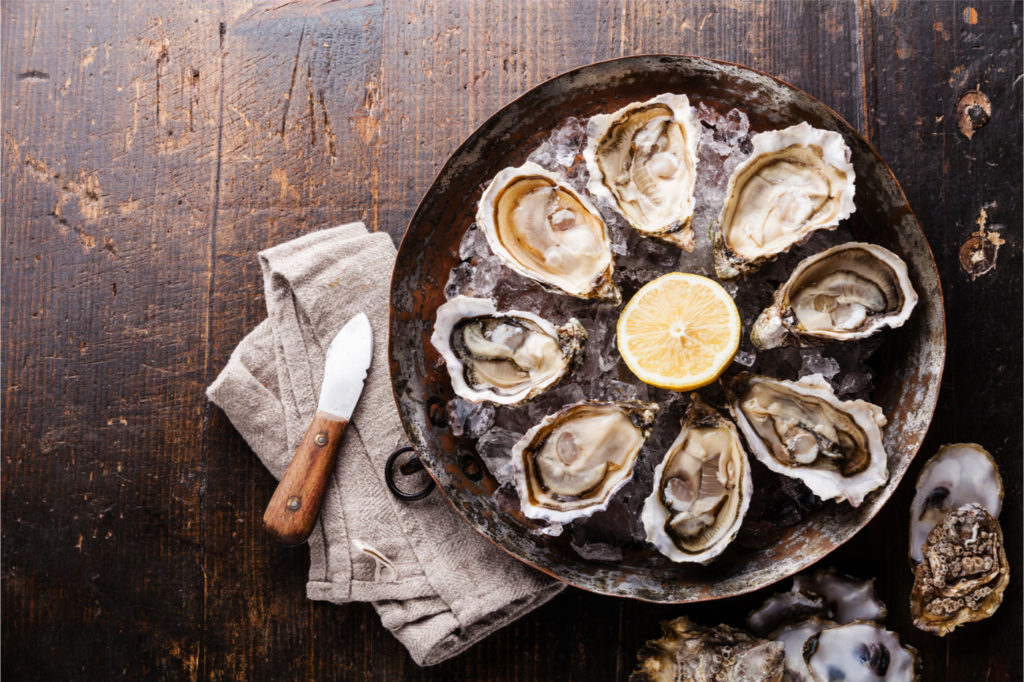
From the depths of the ocean come oysters, a food with the power to help your body speed up its fat-burning motor.
The thing about oysters is this: They’re rich in zinc. In fact, they’re one of the best dietary sources of this valuable mineral.
Why is zinc important? A zinc deficiency is likely to cause a slowdown in your body’s metabolism. Mild to moderate zinc deficiency is quite common.
A 2019 study showed that zinc supplementation can be useful in treating obesity.
This means that by adding oysters to your healthy diet, you’ll get some assistance in keeping fat at bay.
Full-fat Greek yogurt

Full-fat Greek yogurt attacks your body’s fat cells from many different angles:
- First of all, it’s loaded with protein. Protein builds muscle. Adding muscle can help raise your body’s basal metabolism, and this can lead to fat loss.
- Yogurt is also a rich source of probiotics. Probiotics provide the gut with good bacteria. Good bacteria help your body’s metabolic engine run more smoothly and efficiently.
- Finally, full-fat Greek yogurt contains conjugated linoleic acid. Studies show that this nutrient can help promote weight loss and speed up fat burning in people who are overweight or obese. To reap this benefit, be sure to stick with the full-fat version of Greek yogurt. Non-fat and low-fat yogurt aren’t good sources of conjugated linoleic acid.
In various randomized controlled trials, yogurt consumption was linked with lower body weight, lower body fat and smaller waist circumference.
Add full-fat Greek yogurt to your diet to give your metabolism a helping hand.
Coconut oil
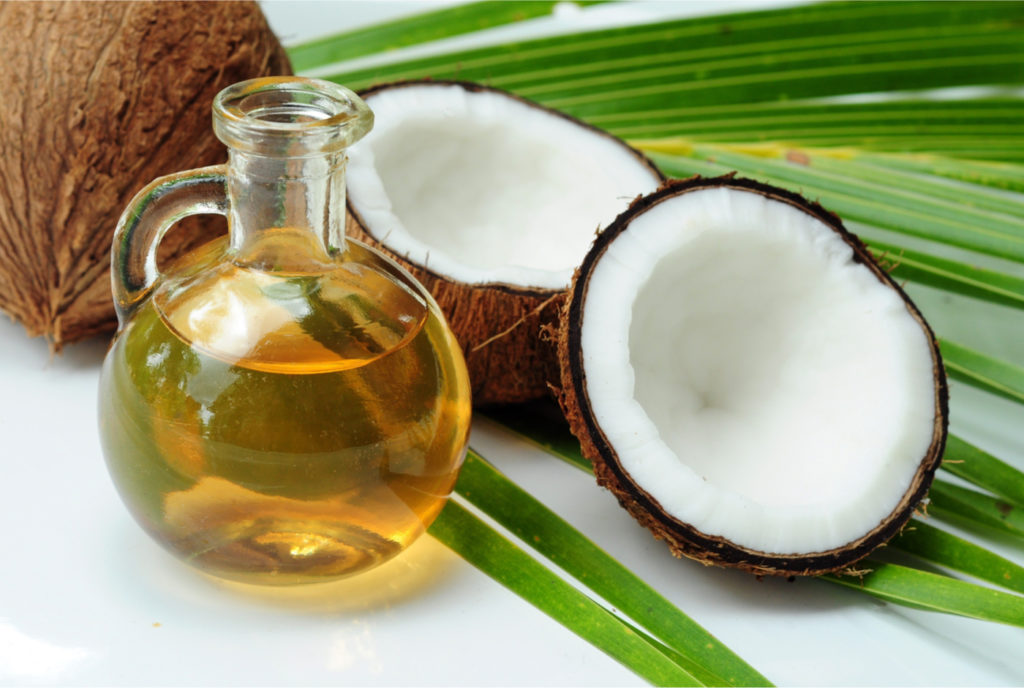
Coconut oil has been a staple in certain traditional cuisines for centuries. More recently, the West has discovered this oil’s healing and fat-burning benefits.
This oil contains fats that are mostly medium-chain triglycerides (MCTs).
Most fatty foods contain long-chain fatty acids. Relative to these fats, MCTs are metabolized differently. Since they are shorter in length, they are absorbed more quickly than long-chain fatty acids.
MCTs are sent straight to the liver. Once there, they are burned immediately for energy or transformed into ketones for use as an alternative source of fuel.
Research shows that MCTs have the ability to suppress your appetite and help you burn more fat:
- In a 2011 study, obese men who added two tablespoons of coconut oil to their diet each day lost an average of roughly 1 inch from their waist circumference.
- This was achieved without making any other changes to their diet, and without any change in their physical activity.
The takeaway is that if you want to kick-start your metabolism, reach for some coconut oil.
Eggs
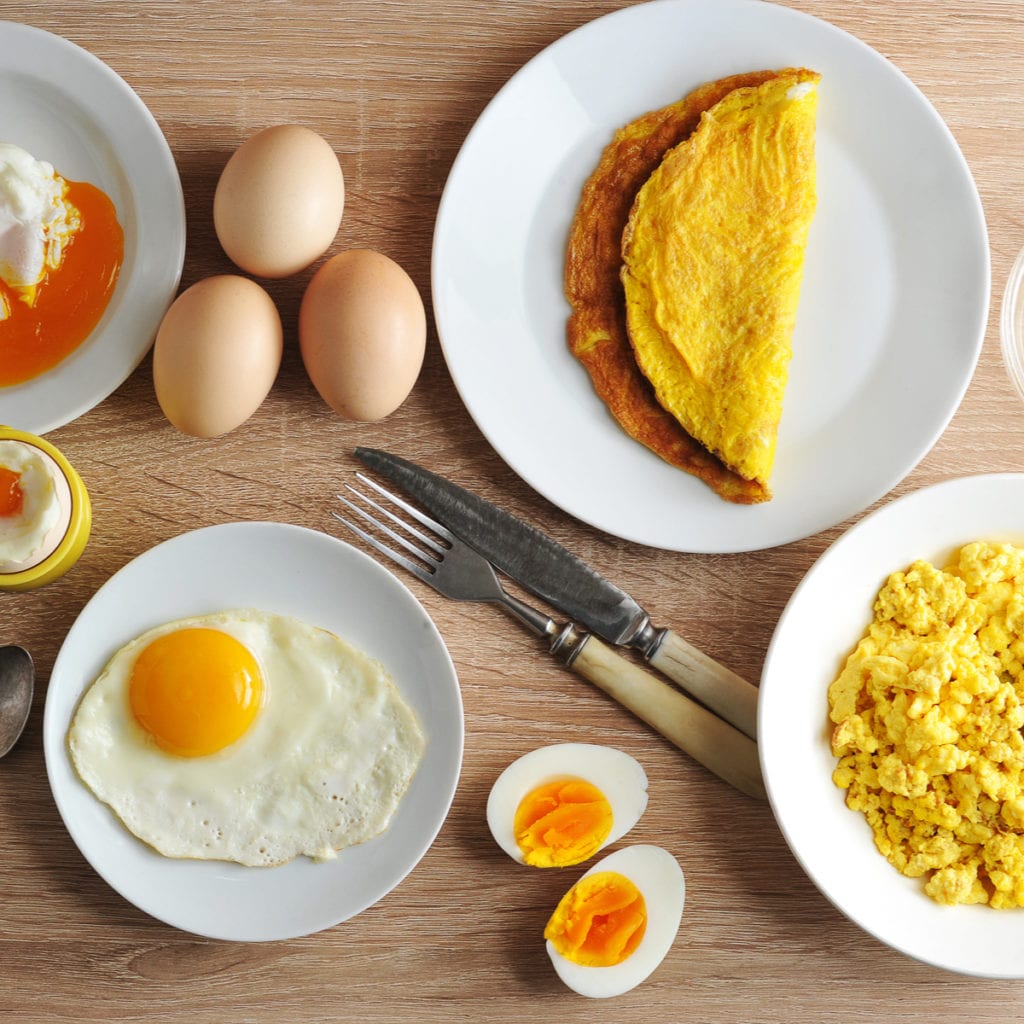
Eggs contain a veritable treasure trove of nutrients.
People used to avoid egg yolks. This had to do with the high cholesterol content of this food. However, recent research has cast the egg yolk in a much more favorable light.
Though eggs raise cholesterol levels in the body, they boost beneficial HDL cholesterol, not the harmful LDL variety. This means eggs have the power to improve heart health.
Eggs contain lots of protein. Protein keeps you feeling full, so it can ultimately work to discourage snacking.
This will help you consume fewer calories. As you lower your caloric intake, you’re more likely to lose extra pounds or maintain a healthy body weight.
Also, the protein found in eggs requires lots of energy to digest. This works to increase your body’s metabolic rate during the digestion process.
Studies show that higher protein intake has been linked with increased thermogenesis. As thermogenesis increases, the body burns more calories. Foods that boost thermogenesis are known as thermogenic foods, and eggs definitely fall within this category.
All this means that eggs are a nourishing food that can help you increase fat loss and prevent heart attacks.
Olive oil
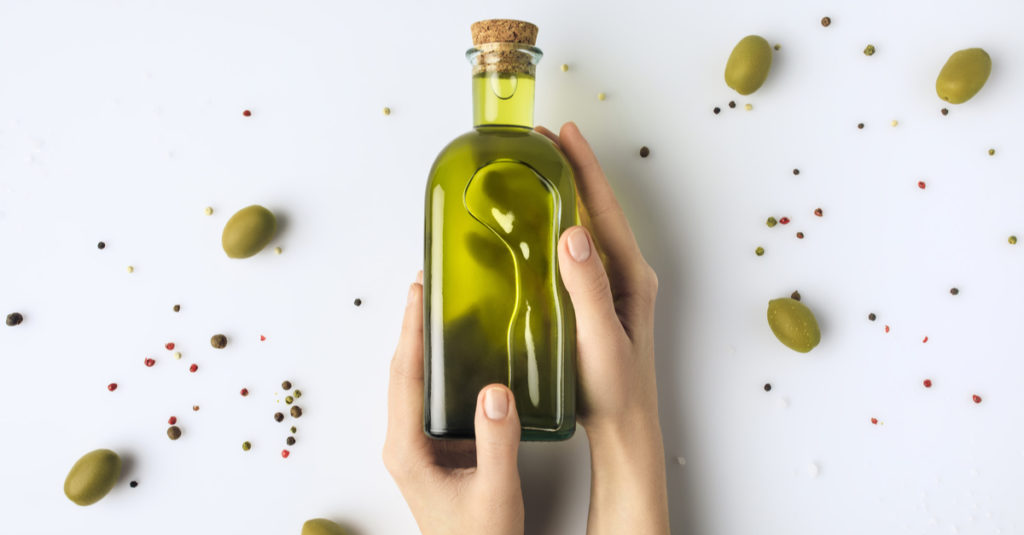
Olive oil is a staple part of the Mediterranean diet, an eating plan that’s been associated with many health benefits.
Studies show that olive oil can help the body maintain healthy cholesterol levels. Research also shows that olive oil works hard to quicken the metabolism and speed up fat loss.
In one study involving obese participants, including olive oil as part of a meal increased the number of calories burned for several hours after the meal was consumed.
Adding fat-burning olive oil to your diet is easy. You can use it for cooking, or you can drizzle it on salads.
Whey protein
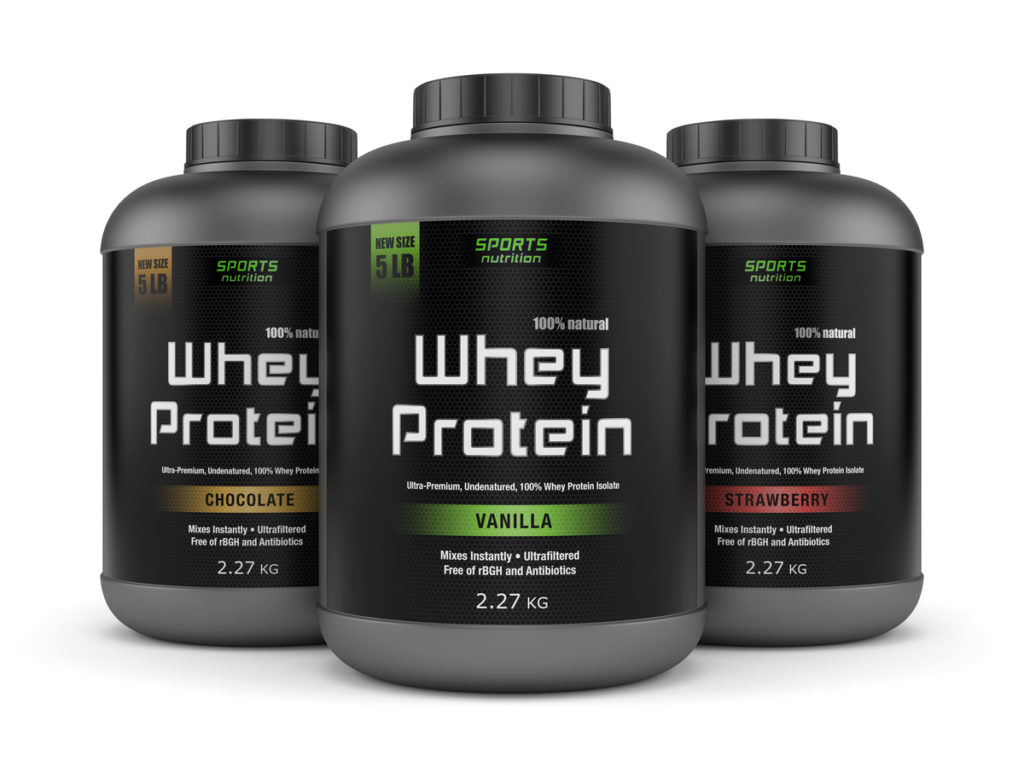
Whey protein is derived from cow’s milk. It’s a favorite with bodybuilders, who use it to help add muscle mass.
Like all proteins, whey protein supports muscle growth. As your body builds more muscles, your basal metabolic rate will increase.
Whey protein also stimulates the release of hormones that leave you feeling full. This can ultimately serve to regulate food intake in ways that support fat burning and weight loss.
Research shows that whey protein can help prevent obesity and protect muscle during dieting. It increases thermogenesis and speeds up the metabolism.
This food also provides other wellness benefits. It can help you maintain healthy blood sugar levels and reduce blood pressure and arterial stiffness.
Add some whey protein to your next smoothie if you want to experience a metabolism boost.
Mustard
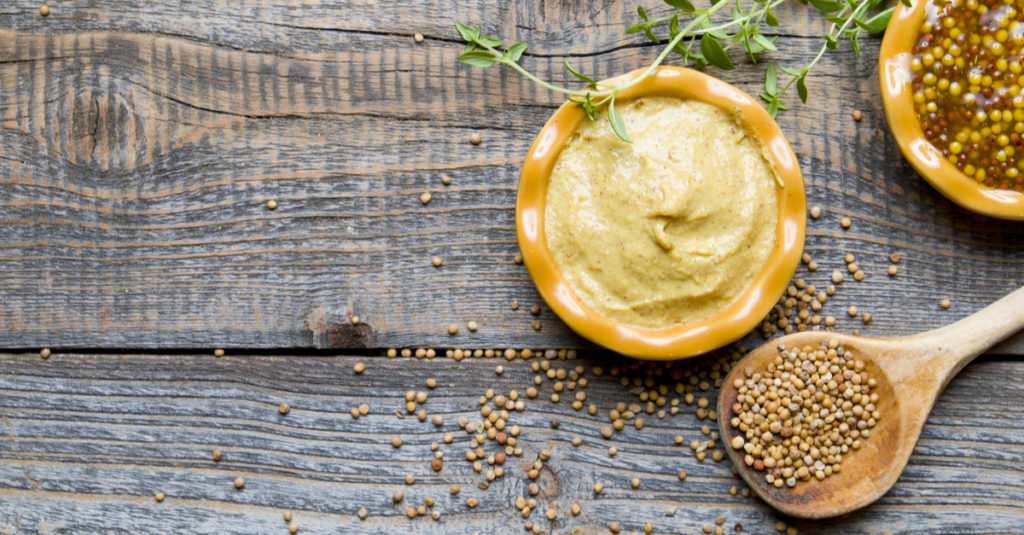
Mustard adds kick to our hot dogs. It turns out this condiment also packs a powerful punch when it comes to burning fat.
This food contains two key phytochemicals: capsaicin and allyl isothiocyanate. These phytochemicals give mustard its one-of-a-kind flavor.
Research shows that the phytochemicals found in mustard work to boost the metabolism.
This means mustard is a great addition to your diet if you’re looking to shed pounds and achieve a healthy body weight.
Caffeinated coffee

If you’re looking for an excuse to keep drinking coffee, you’ve found it.
Many people love this beverage for its caffeine. Caffeine can help improve your mood and sharpen your mental performance.
Research also shows that caffeine can help you speed up your metabolism and maximize fat loss:
- In a 1995, study, caffeine raised the basal metabolic rate of those who consumed it.
- And in a 1989 study, caffeine consumption caused participants to burn as much as 150 extra calories over a 12-hour period.
This means there are some good reasons for drinking caffeinated coffee if you want to supercharge your metabolism.
Organic lean meat
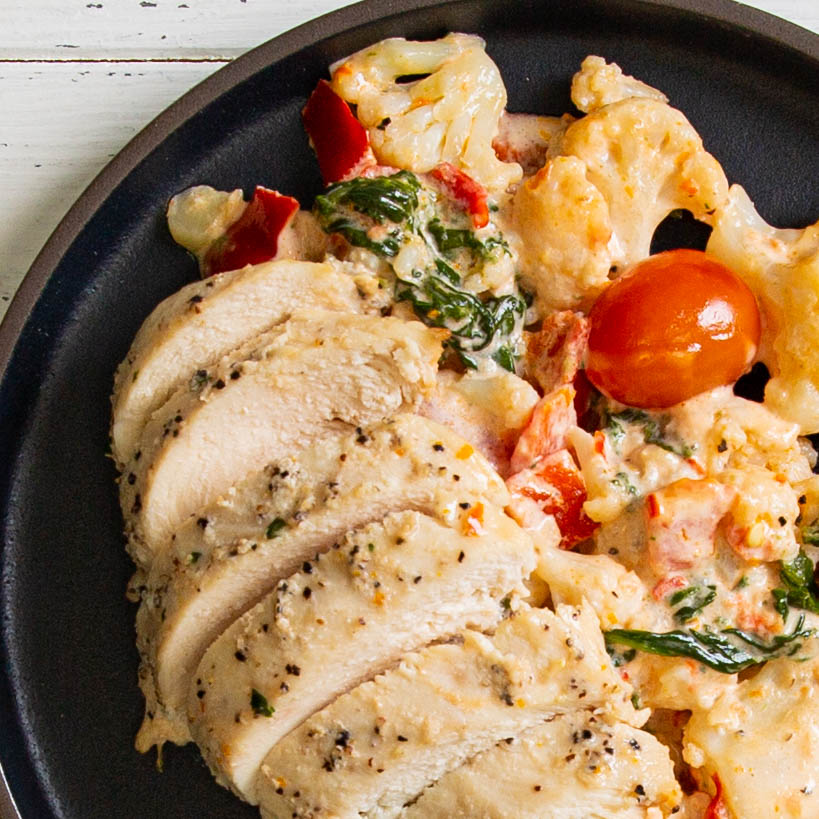
Lean meat is a good source of protein. As we’ve discussed, protein supports a quick metabolism that burns lots of fat.
There’s one caveat: When shopping for this lean protein, shop organic.
Conventionally raised meat contains hormones that can be hard on your metabolism, and on your health in general. Look for organic, pasture-raised beef and chicken if you want to realize maximum fat-burning benefits from these lean protein foods.
Next steps
Many of the fat-burning foods listed above are probably already in your kitchen. If not, you’ll find them at your local grocery store.
If you want to include these foods in your diet but would rather skip the cooking and grocery shopping, subscribe to Fresh N Lean. We offer meal plans that cater to a broad range of diets, and our tasty dishes include fat-burning foods such as salmon, olive oil and organic lean meat. Let Fresh N Lean deliver chef-prepared cuisine to your doorstep.
Fresh N Lean is the nation’s largest organic meal delivery service. Our tasty, chef-prepared cuisine is always fresh and never frozen, and we offer convenient meal plans like Protein+, Keto, Paleo, Standard Vegan and Mediterranean. Choose Fresh N Lean for affordable nutrition, delivered to your doorstep.

